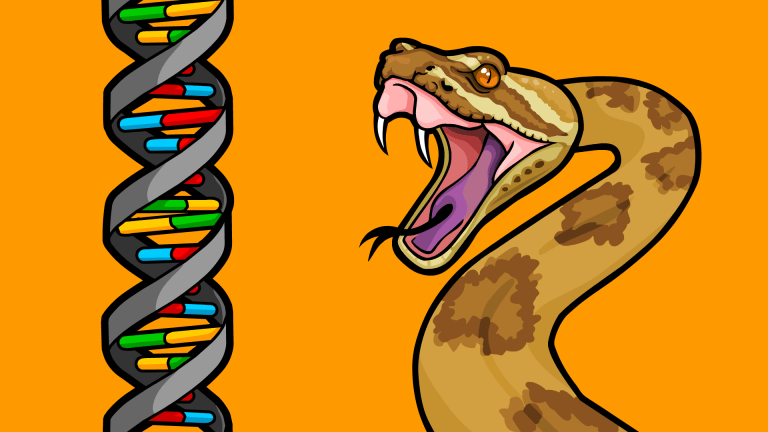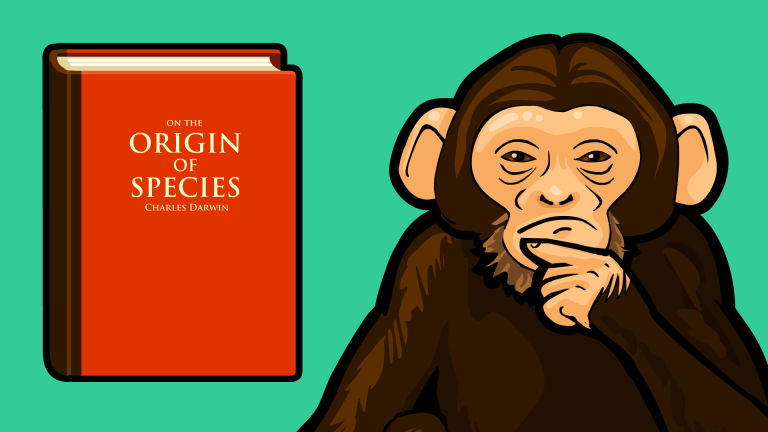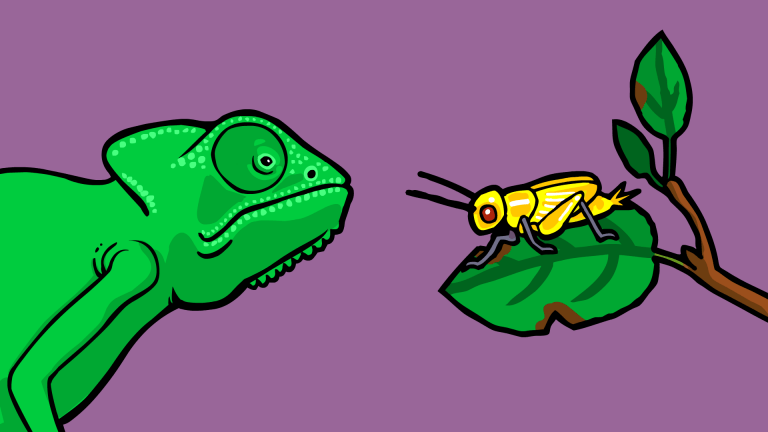Overview
This film is the first of a two part series on the evolution of new genetic information. Here we focus on Point Mutations – the simplest natural mechanisms known to increase the genetic information of a population. Our second film of the series will focuses on gene duplications – natural mutations that increase the total amount of genetic information of an individual.
Point mutations are small, natural edits in the DNA or RNA sequence of an individual. These edits only change a single nucleotide (or letter) and can be passed from parent to child. While they don’t increase the length of an individuals genome, they do increase genetic diversity of a population: they create new alleles.
In this film you will see several examples of beneficial point mutations observed in the lab, in domestic animals, and deduced in wild animals. These mutations are considered beneficial because they enhanced their hosts’ chances at survival and reproduction within a their specific environments.
Explore Further
Stated Clearly article detailing all the experiments talked about in this animation:
Scientific papers about point mutations in bacteria:
- Evolution of Penicillin-Binding Protein 2 Concentration and Cell Shape during a Long-Term Experiment with Escherichia coli
- The Metabolism of D-Arabinose by Salmonella typhimurium
- Experimental Evolution, Loss-Of-Function Mutations and the First Rule of Adaptive Evolution
Scientific paper about point mutations in dogs:
Scientific paper about point mutations in wild animals:
For Teachers
The content of this video meets criteria in the following Disciplinary Core Ideas defined by Next Generation Science Standards. Use our videos to supplement classroom curriculum.
Contributors
Our videos benefit from guidance and advice provided by experts in science and education. This animation is the result of collaboration between the following scientists, educators, and our team of creatives.
Team
- Jon Perry
- Jeremiah Deasey
- Anthony Danzl
- Rosemary Mosco
- Tyler Proctor
Advisors
- Eric T. Parker, PhD
- Nancy Miorelli, MSc
- Nicholas Casewell, PhD
Transcript
How does new genetic information evolve? Part 1: Point Mutations
In our previous films, we learned that genetic information (that is, information carried within a stretch of DNA or RNA called a “gene”) helps determine the size, shape, and even the behavior of a living creature. Humans have over 20,000 genes which tell our cells how to build and maintain our bodies.
The information needed to build a person is obviously different than the information needed to build a mushroom. Biologists, however, tell us that all living things on Earth, including people and mushrooms, evolved from an ancient, relatively simple creature with far less genetic information than the plants, animals, and fungi alive today.
If this is true, how did all this new genetic information evolve?
We don’t yet know for sure how the very first genes came about, but through careful genetic studies of living things in the wild, in the laboratory, and even in our own backyards, we have discovered many ways in which new genetic information evolves today.
In this film we’ll look at the simplest mechanism: Point Mutations.
A Point Mutation is any change that only affects a single pair of nucleotides or letters in the genetic code.
They often occur when cells are reproducing, they appear to be mostly random and they’re surprisingly common. Current studies suggest that In humans, each child born has roughly 70 unique point mutations.
Most mutations are completely neutral but if one happens to land in a sensitive spot of the genetic code, it often has a negative effect on a creature’s ability to survive and reproduce. Natural Selection usually takes care of these negative mutations, by simply removing them from the gene pool.
On rare occasions beneficial point mutations occur. While the changes they make aren’t quite as extreme as what we’re used to in the movies, incredible changes have been observed.
Researchers in the lab of Dr. Richard Lenski for example, witnessed and carefully documented a beneficial point mutation that occurred within a population of E. coli bacteria. An A from its code was simply replaced with a T. Those who carried the mutation were able to reproduce faster than normal in the lab. In less than one year, they outcompeted and caused the complete local annihilation of their non-mutant siblings.
Back in 1976, two scientists reported a strange mutation in Salmonella that occurred in one of their labs. Biochemist Michael Behe has recently evaluated their work and classified the discovery as a rare “Gain of Function” mutation. The mutation gave these microbes the brand new ability to detect and then eat a rare sugar called d-arabinose.
Micro-organisms are interesting, but what about larger, more complex animals? Can simple mutations give them new features too?
Yes they can!
Most domestic dogs and their wild relatives, gray wolves, have fairly short fur. Some dog breeds however, have extremely long fur.
By carefully studying the genetic code of over 700 dogs and then comparing their DNA with that of wolves; scientists discovered a single point mutation on a gene called FGF5. This point mutation, which simply changed a G to a T, is largely responsible for the long fur found in dozens of breeds, including the Shig Tzu, the Collie, and the Pomeranian.
So what about wild plants and animals? Can they undergo positive mutations as well? The answer is: of course they can!
Cane toads and their relatives produce a milky toxin in a gland behind their ears that kills almost any animal that tries to eat them. The toxin works by attaching to and clogging a special protein pore that living cells use to move essential electrolytes in and out of their bodies.
Dr. Nicholas Casewell and his colleagues, recently found that several different kinds of animals; lizards, snakes, and even hedgehogs, have all independently undergone small point mutations which modified the shape and stickiness of their transporter proteins. As a result, toad toxins fail to attach, meaning these mutants are now immune to the poison!
Diner is served, my friends!
So to sum things up:
Point mutations are an excellent source of new genetic information for a population. Dog populations of the past, for example, only had information for growing short fur. Thanks to a point mutation, they now have information to make pups with short fur, or long fur.
It’s important to note however, that point mutations do not usually increase the total amount of information in the genetic code of an individual. Instead they edit what’s already there, meaning that for the individual, when new information is gained, old information is lost.
In our next film, we’ll look at a special type of mutation called a duplication event. These mutations dramatically lengthen the genetic and can even give rise to entirely new genes.
Until then, I’m Jon Perry, and these were just a few simple examples of how new genetic information evolves, Stated Clearly.





